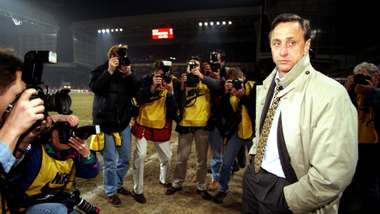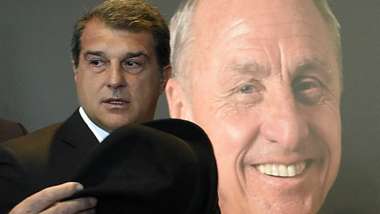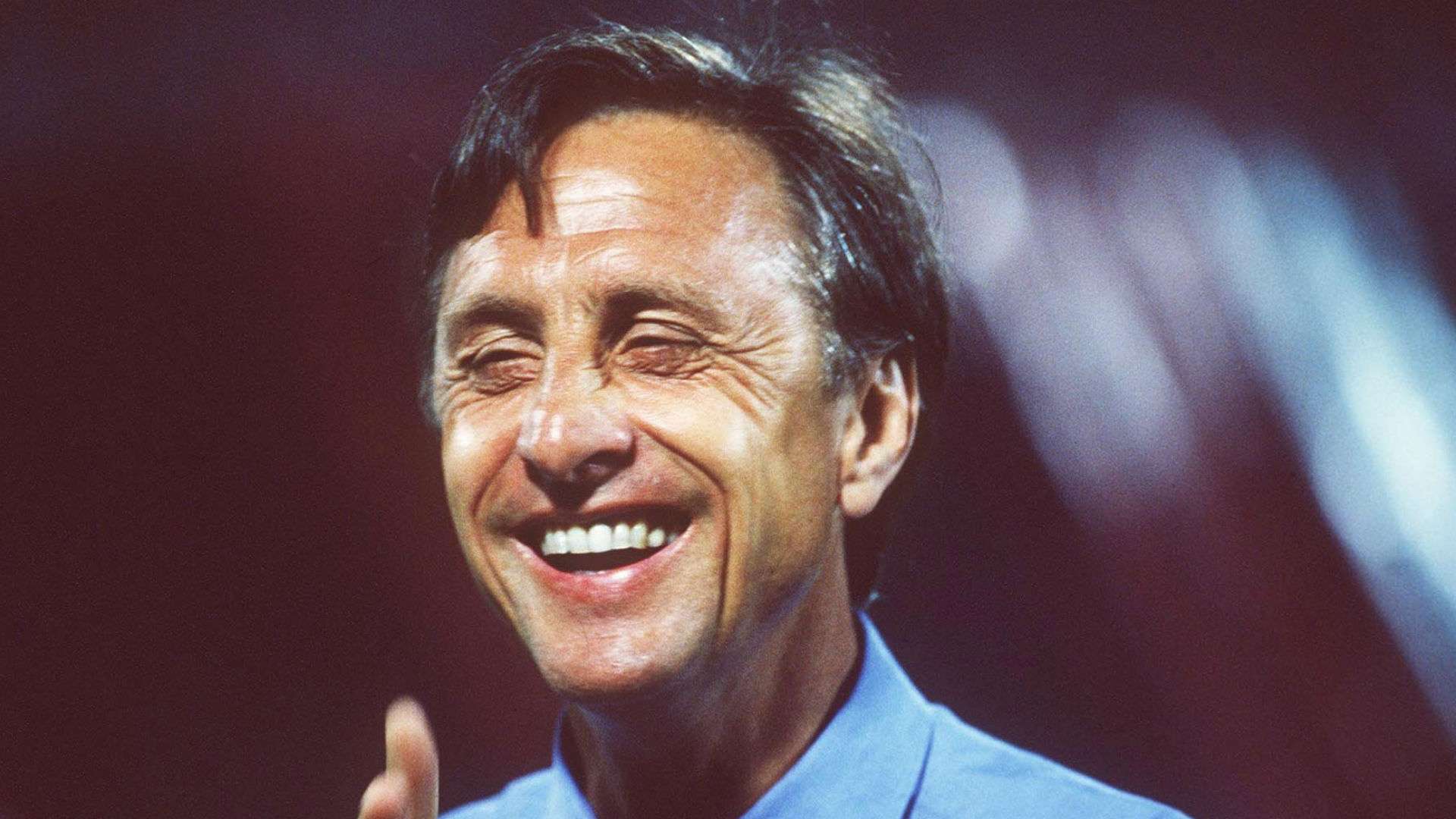COMMENT
Already a year has elapsed. Johan Cruyff passed away on March 24, 2016 at the age of 68 after losing his battle with lung cancer. But Barcelona would do well to never forget the lessons learned from the Dutch master.
Messi pays tribute to Barca legend Cruyff
Cruyff’s legacy remains very much intact at the Catalan club. The former Barca player and coach brought success on the pitch when he signed from Ajax in the 1970s, was instrumental in the development of La Masia and returned to lead the Blaugrana to four league titles in a row and also their first European Cup as coach of the legendary Dream Team in the early 1990s.
Pep Guardiola was part of that side and the midfielder, recommended by Cruyff for the coach’s position in 2008, went on to lead the club into the most successful era in their history, between 2008 and 2012, with 14 trophies won out of a possible 19. And not only that, but the football was wonderful too.
A transition followed until the appointment of Luis Enrique, but indirectly, Cruyff played a part in the Asturian’s arrival as coach as well. In 1996, the Dutchman had pushed for the signing of the Spain midfielder from Real Madrid and convinced the player to join. Ultimately, the two would never work together, but as Cruyff said when Luis Enrique came in as coach: "He has one thing in his favour - I signed him!"

It is fitting that, at the time of the anniversary of Cruyff’s passing, Barca are playing with the Dutchman’s famous formation: 3-4-3. Luis Enrique has used the system to success in recent weeks, most notably in the 6-1 win over Paris Saint-Germain in the Champions League which saw the club come back from a 4-0 first leg deficit.
However, Barca have moved away somewhat from the positional play which made them unique under Cruyff and later Guardiola, favouring a more direct approach with Luis Enrique in charge. In the meantime, there has also been a tendency to look elsewhere for players instead of using the talent at La Masia.
'Superb' Unzue in the running for Barca job
And with the Asturian to depart in the summer, the Catalan club are approaching a fork in the road. Barcelona must decide not only the right coach to replace Luis Enrique, but also decide what they want to be from now on. Do they restore the values of La Masia and move back to the positional play that became their trademark or instead change direction to become a club like any other?
There is no doubt what Cruyff would want. The Dutch icon insisted on the development of young players for the first team and also a blueprint for attractive, attacking football with an emphasis on possession and also pressing. Barcelona wanted the ball all the time and a style of play was introduced along the lines of the great Ajax teams in which he played.
 Getty Images
Getty Images
Evolution is necessary, as always, but Barcelona now have an opportunity. Luis Enrique is leaving and although he has been spectacularly successful (winning a treble and eight out of 10 trophies so far), a little of the style and identity has been relinquished along the way.
Barca want Iniesta to stay for years
Now, his assistant Juan Carlos Unzue and former Barca player Ernesto Valverde (who was also signed by Cruyff) are the two main men in contention to replace the current coach, while the Catalan club still need a long-term replacement for Xavi as Andres Iniesta approaches the end of his playing days as well.
It is in times like this that Barca used to look to Cruyff. As an advisor to former club chief Joan Laporta, the Dutchman picked Frank Rijkaard and later Pep Guardiola, while he was indirectly involved in the arrival of Luis Enrique as well and La Masia would not have been what it is today without his input.
So one year on from his passing, the Barcelona board would be best advised to take heed of Cruyff’s achievements, his success story and his legacy at Camp Nou. Because he, more than anyone else, not only made the Blaugrana great, but he also made them different. And over the past year or two, some of that special identity has been lost.



